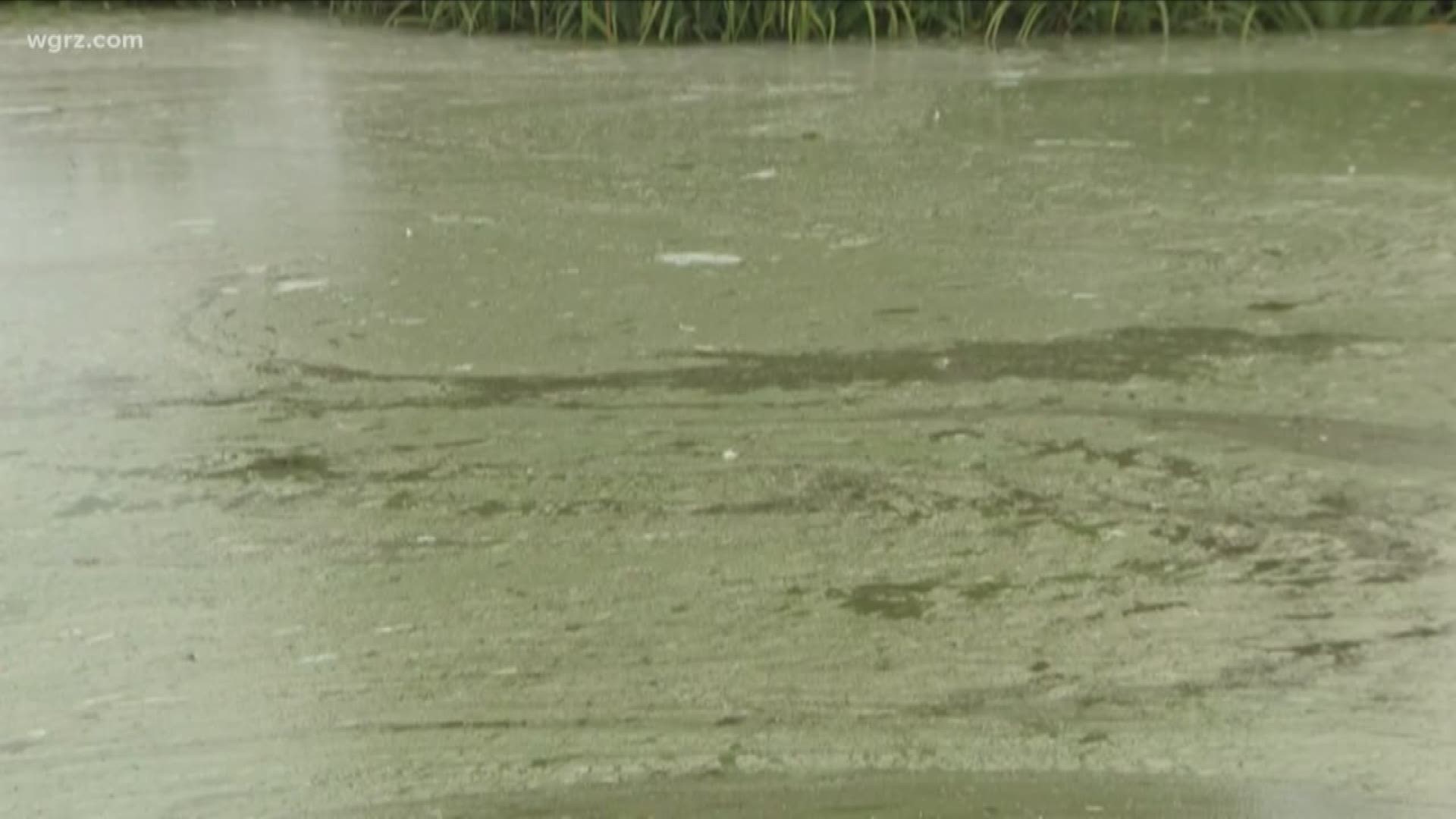In recent weeks along Chautauqua Lake there have been multiple confirmed reports of toxic algae bloom, which can be very harmful to people and pets.
Toxic algae is nothing new on the lake, but some say it is more prevalent this year.
In the words of the Chautauqua Lake Association, the toxic algae bloom started popping up earlier this summer than in previous years and has been more intense.
2 On Your Side found some examples of how toxic or harmful algae bloom looks. There is green algae that is safe, and then there’s harmful algae, and it is important to know the difference.
According to the Department of Environmental Conservation, harmful algae has sort of a paint or soup-like texture, and that can cause symptoms such as vomiting and breathing difficulties. Green algae just floating in the water is safe.
According to the state, there have been 15 confirmed reports of harmful algae bloom along the southern portion of Chautauqua Lake. That number varies year to year.
“We’re concerned about how the publicity is out there on the lake because the lake is useable in many areas it’s just in some areas it’s not,” said Doug Conroe the executive director of the Chautauqua Lake Association.
Because of blue green algae, the Chautauqua County health department says that the beach at Long Point State Park has been closed on and off this summer, and Lakewood Village Beach is closed and there are signs up letting people know about that.
A big question has been why or how the algae has apparently strengthened?
It all starts with what happened along the lake several months ago, right before Memorial Day. The health department tells us several local town governments got together to spray herbicide to kill overgrown vegetation along the lake, because it didn’t look good and was affecting boaters.
The Chautauqua Lake Association believes that created more space for the toxic algae bloom to exist and spread under sunlight.
“This year they came on stronger and earlier in herbicide treated areas here in the south basin, especially the south end of the south basin,” Conroe said.
“I’ve lived on this lake for 30 years I don’t see that it’s any worse we’ve had a much hotter summer this year than we’ve had the past few summers that does definitely help the bloom grow,” said Patrick McLaughlin, supervisor of the Town of Ellicott, which was involved in the herbicide treatment.
The Chautauqua County Health Department says at this point, there is not enough evidence to support the theory that herbicide spray sped up the toxic algae bloom here.
Still, we have seen people out enjoying the water, boating and fishing. Anyone who comes in contact with toxic algae bloom should seek medical help.

